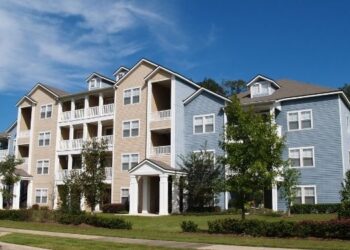If you have ever looked at the real estate market in Chicago, you’ll notice that there are almost twice as many condos for sale than there are single family homes. As of June 2019, Chicago had 6,177 condo units on the market, compared to 3,499 single family homes. With that many more options, why wouldn’t you explore a condo for your first or next real estate purchase? But before you buy, make sure you understand these 10 things first!
1) Monthly / Annual Assessments:
In Chicago, you will see condominiums have monthly assessments ranging from $100-$1,500+. These monthly Home Owners Association (HOA) dues are used to cover the building’s operating expenses for all the shared areas. As a condo owner, you only own what is enclosed between the walls of your unit, the remainder of the space is all considered shared. The most common shared operating expenses are building insurance, common area electric & gas, water, garbage services, and maintenance. Some buildings may also include within their monthly dues, services for landscaping, snow removal, and janitorial cleaning.
Smaller condominiums with only a hand full of units typically can afford lower due payments, especially if there is a healthy reserve account on the HOA’s balance sheet. Large, skyscrapers often are on the high end of the assessment amount, since they are much more expensive to maintain and require additional services such as a doorman, security staff, etc.
2) Reserves:
The reserve account balance is arguably the most crucial aspect of a condominium. This amount will give you insight into the level of risk you are about to enter when you purchase the unit for sale. If there is not enough money in the reserves to cover an unexpected roof expense, the association will issue a special assessment to offset the cost of the roof repair. Depending on the work involved, this could be a hefty surprise bill that each unit owner is required to pay.
How much should an association have in reserves to be satisfactory? It’s never easy to say, but a rule of thumb has been about $2,000 per unit in the building. If there are 10 total units, you would want to see approximately $20,000 in reserves in addition to the money used for operating expenses. A lesser amount could mean trouble if major expenses such as the roof, tuckpointing, or main boiler has not been maintained or replaced in many years.
3) Special Assessments:
Special assessments are the surprise expenses that no one in the building planned for. They are the unexpected problems that come with maintaining a building. If the reserves are not healthy enough to support the unforeseen cost, the association will vote to initiate a special assessment, which is divided by each unit based on their percentage of ownership in the building. For example, if your new condo has a 35% ownership in the building, a $10,000 total expense will see $3,500 of it paid by you.
If special assessments are occurring while a unit is being sold, make sure the seller covers the entire special assessment before transferring ownership, otherwise the new owner will be required to pay the remaining special assessment balance that was assigned to the unit.
4) Restrictions:
As a buyer, you should know that every condominium building has their own set of declarations and by laws. It is very important to ask questions about any building restrictions when purchasing, as one building will likely have different rules than the building next to it. A few common restrictions amongst Chicago condominiums are:
Pet Restrictions: Some buildings are cats and small dogs only, nothing over 50 lbs. Other buildings are cats only and absolutely no dogs. Or there are those with no pets allowed at all! Ask this question before submitting any offer on a condo if you own a pet.
Rental restrictions: This is a big one for those looking at their next condo as a rental investment. Many buildings will have a minimum number of years required to owner occupy the unit before it can be rented, some being 2 years minimum. Additionally, majority of associations have rules on how many units can be rented at one time. This is referred to as the rental cap and is often expressed as a percentage of the building. For example, a 30% rental cap would indicate 3 units of a 10-unit building would be eligible to rent, the other 7 are required to be owner occupants. Once the cap has been hit, no other units would be eligible to rent. Further, if you are considering AirBNB, make sure the condo allows it!
5) Number Of Units In The Building:
Find out how many are in the building and what the occupancy mix consists of. Ask for the percentage of rented, owner occupied, and vacant units.
6) Recent Maintenance:
You want to buy into a building that has an active form of maintenance. Find out what were some of the recent projects done at the building. If the listing agent does not know this information, many times it can be found in the most recent HOA minutes that are required to be recorded and passed along to a future buyer. The biggest questions always revolve around the roof, tuckpointing, windows, and if there were any plumbing problems during the recent polar vortex.
7) Window Responsibility:
Some HOA’s budgets have a schedule to replace 1 or 2 windows in a unit every few years. A larger building might want control of this in order to keep the exterior of the building looking the same. Other HOA’s don’t budget this expense at all and leave the window replacement up to the unit owner. Make sure to find out who is responsible.
8) Renovation Process:
Planning to remodel? Make sure you ask the HOA first! They may require a project approval or insist on pulling city permits, which could involve utilizing the services of an architect or structural engineer. Make sure to find out what the process is before pulling the trigger on a condo that needs rehab.
9) Limited Common Elements:
Limited common elements are the shared spaces of a condo building. If there is a shared deck space, it is considered a limited common element. Parking may also be viewed as a limited common element. Many times, parking will be assigned to a specific unit but the garage the parking space is within is considered the limited common element. Any maintenance to limited common elements would be the responsibility of the HOA.
10) Self-Managed vs Professionally Managed Buildings:
Smaller unit condos are typically self-managed, meaning the unit owners are the ones responsible to procure maintenance services. Many times, unit owners will decide painting needs to be done and someone on the HOA board will call local painters for bids. The board will then decide on who to hire for the job. It can be a time consuming process. The positive of a self-managed building is that the association is not paying a management fee and you can have a lower monthly assessment.
A professionally managed condo is ideal for larger buildings with many units. These are outsourced companies that specialize in property management, from administrative move ins/outs to hiring building maintenance. They typically already have contractors they use on a regular basis to take care of upkeep and execute large projects.




